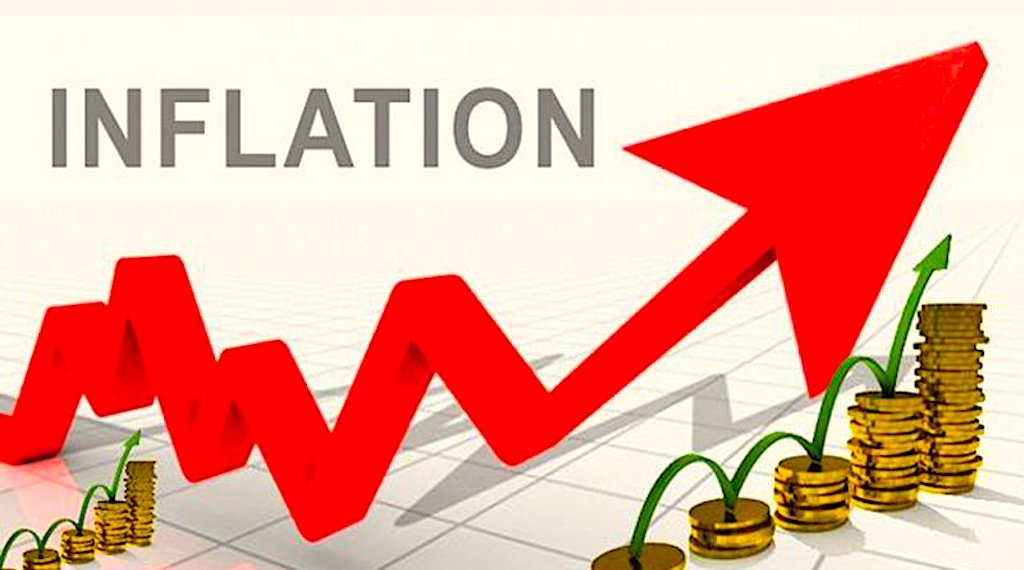Nigeria’s inflation hits 33.20% amid high food prices

Nigeria’s annual inflation rate rose to 33.20 per cent in March from 31.70 per cent in February, the National Bureau of Statistics (NBS) said on Monday.
The statistics office said the March 2024 headline inflation rate increased by 1.50 per cent compared to the February 2024 headline inflation rate.
On a year-on-year basis, the NBS said the headline inflation rate was 11.16 per cent points higher compared to the rate recorded in March 2023, which was 22.04 per cent.
"This shows that the headline inflation rate (year-on-year basis) increased in March 2024 when compared to the same month in the preceding year (i.e., March 2023).,” it said.
Furthermore, the bureau said on a month-on-month basis, the headline inflation rate in March 2024 was 3.02 per cent, which was 0.10 per cent lower than the rate recorded in February 2024 (3.12 per cent).
This, it said, means that in March 2024, the rate of increase in the average price level is less than the rate of increase in the average price level in February 2024.
According to the report, the food inflation rate in March 2024 quickened to 40.01 per cent on a year-on-year basis, 15.56 per cent points higher than the rate recorded in March 2023 (24.45 per cent).
In recent years, food prices have been on the rise across Nigeria. The situation deteriorated due to the impact of government policies such as the removal of subsidies on petrol, among others.
The upward trend in the prices of these staples and other products has weakened the purchasing power of many citizens, making it difficult for many households in the country to afford daily meals.
Nigeria’s naira has, on several occasions, plunged to record lows across both the official and unofficial markets amidst an increased forex demand and a surge in the prices of goods and services across the country.
This prompted the Nigerian government to put measures and reforms in place to safeguard the country’s foreign exchange market and combat speculative activities.
Earlier in April, the Central Bank of Nigeria (CBN) disclosed that it sold $10,000 to each Bureau De Change operator at a rate of N1,101 per US dollar to address the lingering price distortions affecting the naira exchange rate in the forex markets.
This newspaper reported that the naira on Friday experienced huge appreciation at the official market, trading at N1,142.38 to the dollar.
Data from the official trading platform of the FMDQ Exchange, which oversees the Nigerian Autonomous Foreign Exchange Market (NAFEM), revealed that the naira gained N88.23.
In its inflation report Monday, the NBS said the contributions of items on the divisional year-on-year level to the increase in the headline index are food & non-alcoholic beverages (17.20 per cent), housing, water, electricity, gas & other fuel (5.56 per cent), clothing & footwear (2.54 per cent), and transport (2.16 per cent),.
Others are furnishings & household equipment & maintenance (1.67 per cent), education (1.31 per cent), health (1.00 per cent), miscellaneous goods & services (0.55 per cent), restaurant & hotels (0.40 per cent), alcoholic beverage, tobacco & kola (0.36 per cent), recreation & culture (0.23 per cent) and communication (0.23 per cent).
The percentage change in the average CPI for the twelve months ending March 2024 over the average of the CPI for the previous twelve-month period was 27.13 per cent, showing a 6.76 per cent increase compared to 20.37 per cent recorded in March 2023.
Food inflation
The food inflation rate in March 2024 was 40.01 per cent on a year-on-year basis, 15.56 per cent points higher than the rate recorded in March 2023 (24.45 per cent).
The bureau said the rise in food inflation on a year-on-year basis was caused by increases in prices of garri, millet, Akpu uncooked fermented (which are under the bread and cereals class), yam tuber, water yam (under potatoes, yam, and other tubers class), dried fish sardine, mudfish dried (under fish class), palm oil, vegetable oil (under oil and fat), beef feet, beef head, liver (under meat class), coconut, watermelon (under fruit class), Lipton tea, bournvita, milo (under coffee, tea and cocoa class).
“On a month-on-month basis, the Food inflation rate in March 2024 was 3.62 per cent, which shows a 0.17 per cent decrease compared to the rate recorded in February 2024 (3.79 per cent).
“The average annual rate of Food inflation for the twelve months ending March 2024 over the previous twelve-month average was 31.40 per cent, which was 8.69 per cent points increase from the average annual rate of change recorded in March 2023 (22.72 per cent),” the report said.
Culled from Premium Times Nigeria

